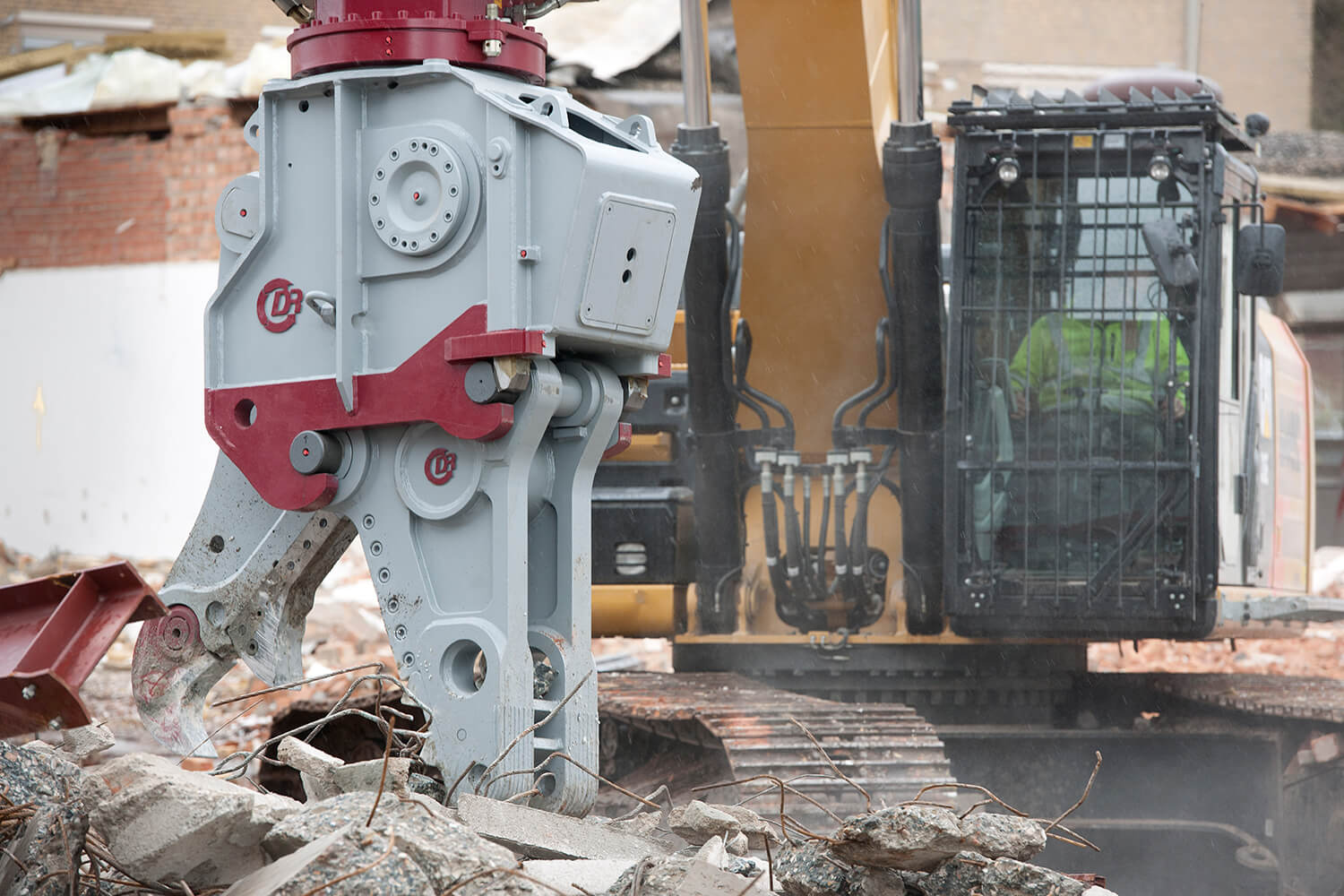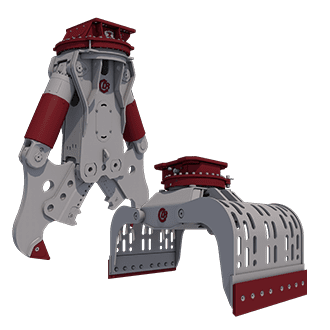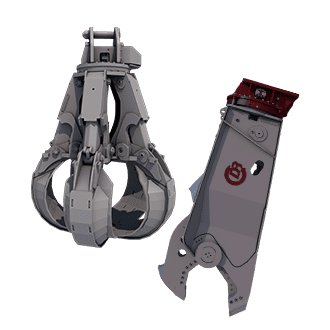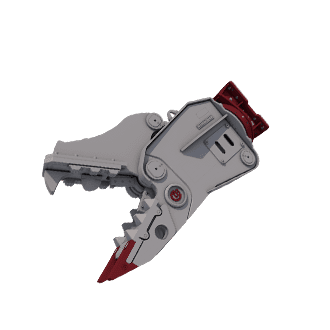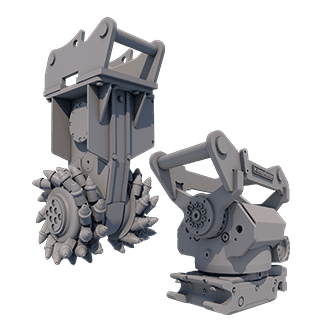- Home
- /
- 20 years of Demarec...
Demarec 20 years interview with founders
20 years ago, Demarec was founded. An experienced engineer and a wilful marketeer joined forces to turn their plans into reality. And with success! Since it is time for Demarec to celebrate their 20th anniversary this year, we asked owners Ruud de Gier and Marcel Vening about their Demarec adventure. What have they learned over those 20 years? What moments were special for them and what has challenged them? How have they experienced their entrepreneurship so far? And what do they predict for the future of the demolition industry and Demarec’s part in that?
“We have believed that Demarec would be a success from the start,” Marcel states. “Otherwise, you wouldn’t start a company. We never assumed that it could go wrong. However, we did make the necessary preparations to prevent us from failing. When we founded Demarec in 2001, we did so with the ambition to introduce truly innovating products to the market. It didn’t necessarily have to be an entirely new product, but mostly a product that was able to perform better. We really rely on our product know-how and focused on power, velocity and quality. That comes with a price tag, of course, but we have always thought the added value was more than worth it. Of course, it led to us not winning projects from time to time, but, personally, I never viewed that as a bad thing. If we were ‘too expensive’, in my eyes, that had nothing to do with the quality of our product, but with the choice that the customer made. If we did win a project, on the other hand, it was an even bigger win for us. This customer was prepared to spend more money than our competition asked for and actually picked us and our innovating product.”
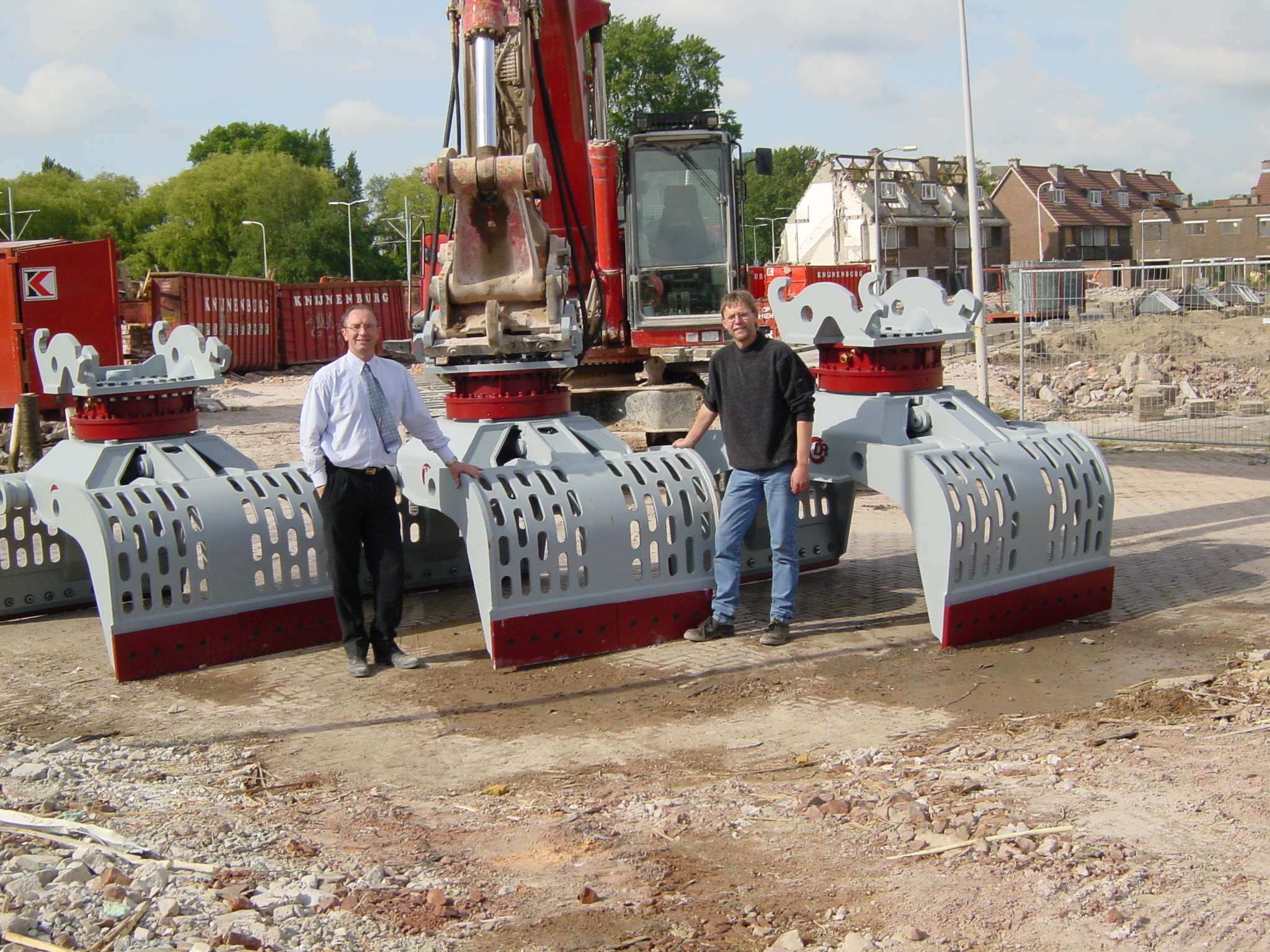
Ruud and Marcel with the first series of the DRG demolition and sorting grabs
Click here for more about the Demolition and sorting grab – DRG
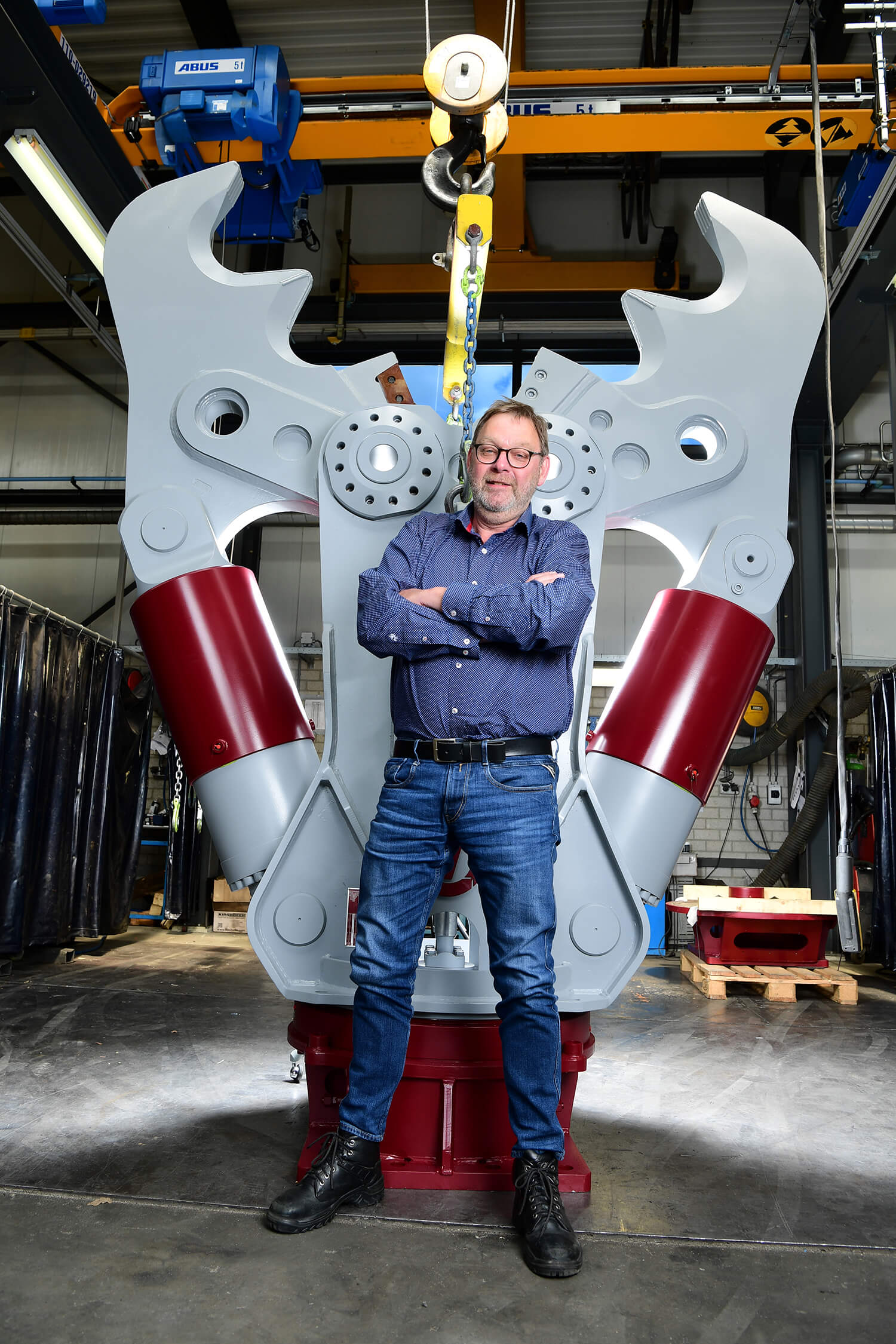
Ruud, chief engineer and co-founder of Demarec at the DCC two cylinder concrete crusher.
Click here for more about the Two cylinder concrete crusher – DCC
The challange of being an entrepreneur
Constantly wanting to introduce innovating products is an ambitious goal, but it also poses its challenges, Ruud experienced: “Guaranteeing the continuity of constantly developing new products has brought its share of pressure. You can never stop, otherwise your planning will overrun, and you won’t be able to sell your products any longer. We really believe that this is our strength and, in order to become successful, you need to believe in and rely on your own strength. You need to know that you’ll be able to live up to it and persevere with your long-term goals in the back of your head. You don’t want to divert from those, because you’ll lose the grip on your company. Personally, I believe that it is very important to trust your gut, because that is your best advisor. It should always feel right, because we have experienced that our guts are our best advisors.” Marcel agrees: “You should have a feeling for what you do and really enjoy it, because that is the only way to get energized by you what you do and turn it into a success.”
Of course, that doesn’t mean that Marcel hasn’t faced any challenges during his entrepreneurship despite his passion for his job: “We have really had to fight to gain our current position and to generate business. Every time you launch a new product on the market, you are constantly occupied with how to do so and which arguments you can use to sell your product’s added value. Because the company and the arguments you introduce are so in sync with each other – you have put in your soul – you can carry those arguments. Some things come naturally. You might have finished your studies and have degree, but that doesn’t mean that you master the profession. Without a degree, you can act on your gut feeling and still be received well by the market. The knowledge, experience and knowledge that you have are much more important and those are, in my eyes, the best components to start a company with.”
Establishing a succesful company
During 20 years of entrepreneurship, Ruud and Marcel learned a lot about what does and doesn’t work for a company. Therefore, they have some tips for starting entrepreneurs: “When you start a company, especially in this industry, it is important that you prepare really well,” Ruud remarks. “Write a proper business plan and set realistic goals. Don’t set your expectations too high, but make sure your goals are achievable. You’re going to need financers in this world, because the stocks and debtors are quite high since you’re working with big and expensive tools. Payments can remain unpaid for longer than 3 months, so you have to be able to compensate that. Banks trust you more quickly when you can live up to your numbers during the first year, they will grant you credit more easily if you can do that. Therefore, make sure that you have strong financial insight in and control over your company from the very start.” Also, you need the right motivation and support, according to Marcel: “You shouldn’t get into an industry or start a company because you’ll be able to earn a lot of money, that is the worst motivator to become an entrepreneur. Sometimes, people seem to think that you are immediately successful when you start as an entrepreneur, while you have to live up to everything that you want, and it’ll cost you quite some sleep. You have to be able to annul yourself and persevere, even when you’re really tired. In the beginning, you won’t be as tired, since your job will mostly energize you, but when you continuously endure long working days and busy working weeks, it will have its impact. I used to be away from home a lot, I worked 7 days a week when we’d just started. We didn’t have any employees yet, so we did everything ourselves; from quoting and order confirmations to billing and entering data. The kids used to ask whether I was ‘home’ or ‘in the house’; when I was ‘home’, I was there for them, when I was ‘in the house’, I happened to be there, but I was busy with other things. Therefore, you need perseverance, even though I never saw it like that when it comes to myself. This is my natural way of doing this. I think it isn’t possible to learn these kinds of things, even though you can improve in them. You mostly need to believe in what you do and trust on the knowledge you have.”
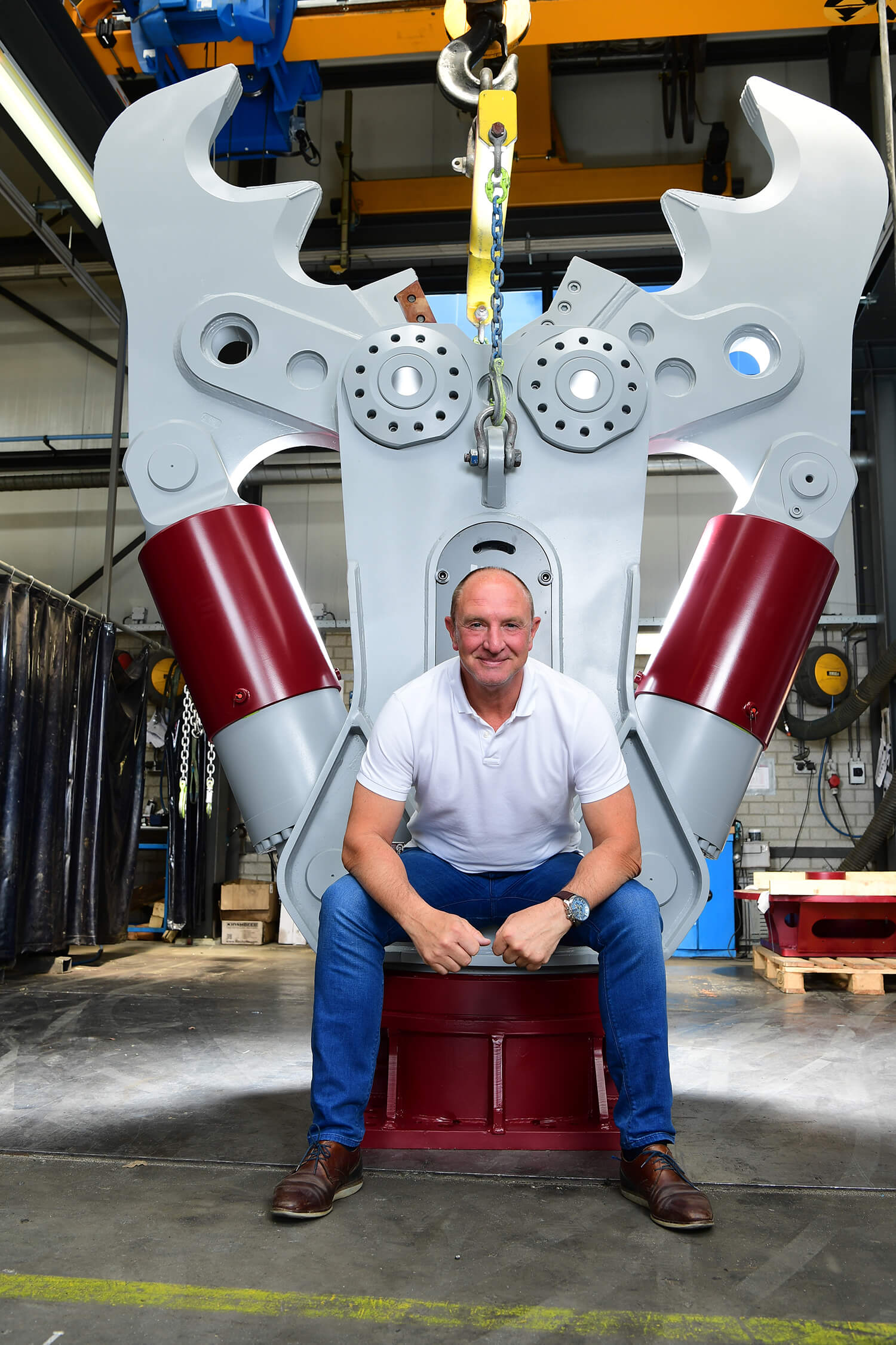
Marcel, Sales, Marketer and co-founder of Demarec with the DCC two cylinder concrete crusher.
Click here for more about the Two cylinder concrete crusher – DCC
A Demarec highlight
When we ask Marcel and Ruud what one of their most special moments in 20 years of Demarec was, they both answer the same: “Standing on the Bauma in Munich – one the most prestigious international fairs in our industry – for the first time in 2004.” That was quite a happening for Demarec according to Ruud: “The Bauma was organised in April of 2004, so we had to develop new products in November 2003 in order to be able to present them on the fair in time. We had announced that to the press as well, including a picture with a red cloth draped over one of our pulverisers to introduce the launch. Needless to say, there was quite some pressure to present something new, so I took my laptop home and worked around the clock to develop new products. Apparently, I perform well under pressure, because I succeeded to create the MQP, DemaPower cylinder technique and the Demalog-technique, that is still being refined by our mother company, in just a couple of months. During that fair, we were able to present everything and we sold products which were worth over a million euros. That was a real milestone for us, something you will never forget.”
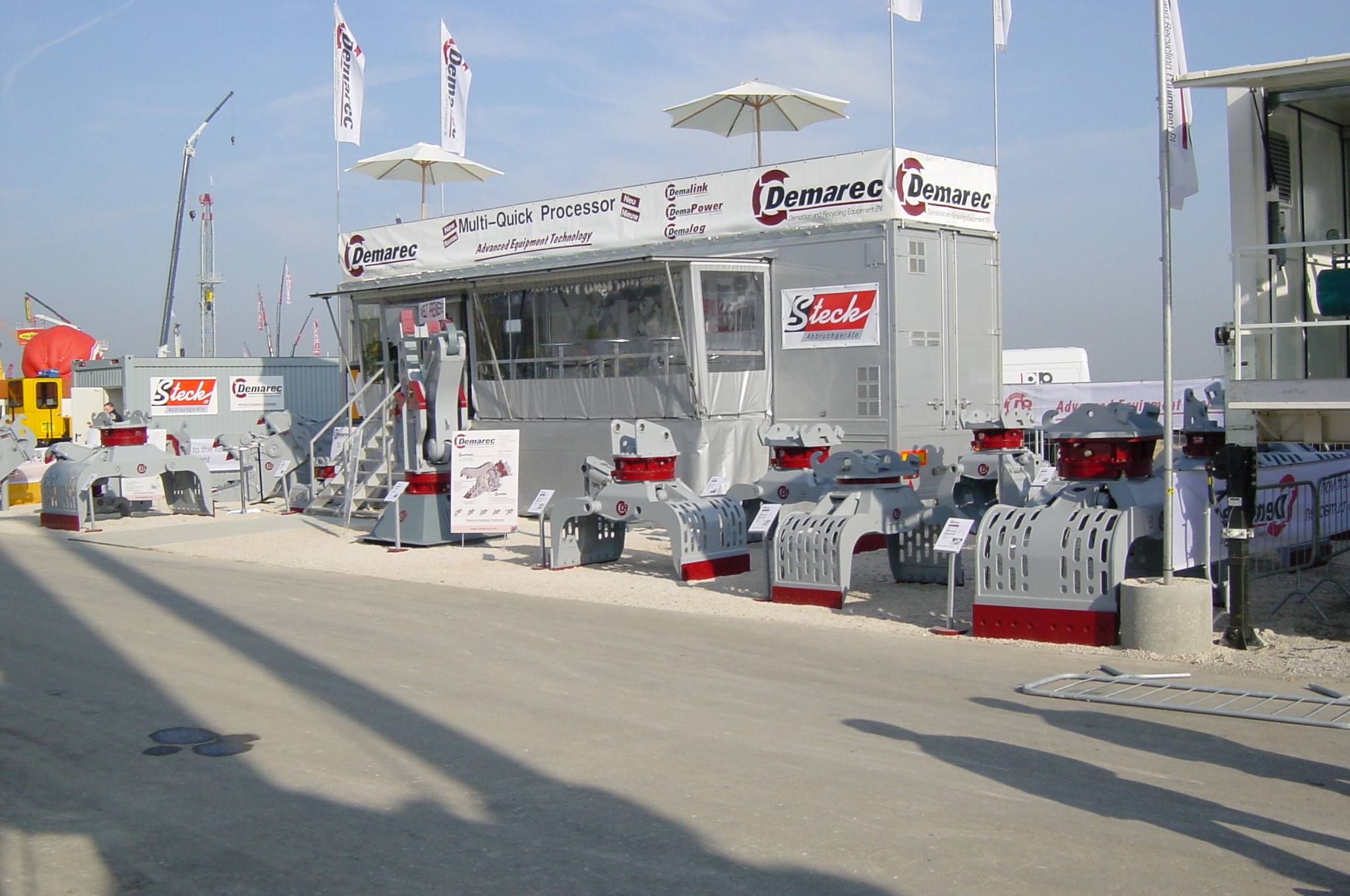
The Demarec exhibition booth at Bauma 2004
Being flexible
When you’re in the profession for 20 years, you experience quite some changes and that requires some resilience and flexibility from an entrepreneur. “The market has changed quite a bit in a couple of areas compared with 20 years ago,” Marcel states. “However, our vision has remained largely the same. We noticed that the market is becoming more and more price-centred and that requires us to keep adjusting along the way.” Ruud confirms this: “In 20 years’ time, more competition has arisen and that leads to price-centred selling. We have had to adjust our vision a little bit, even though we still focus on developing and delivering qualitative products with which we distinguish ourselves from the rest. Of course, it can cost a little bit more, but the gap between us and our competition can’t become too large, it should remain affordable and sellable. Also, you can tell that customers have become more critical; everything has to be right, from the cost price and the quality to the performance a product can deliver. We have all become more critical, which is very logical as parts can be bought over the Internet and you are able to demand a certain service from a producer. That is quite a difference compared to back in the days and that’s what we are focusing on more right now.”
Future
The future, according to Marcel and Ruud, is in line with the aim they have always had; introducing innovative products to the market. “We don’t work in an industry that is constantly moving at a fast pace, such as automizing,” Marcel states. “Our products have not been refined as quickly as, for example, mobile phones, which have become indispensable in 10 to 20 years. In our industry, we will turn our attention to dust production, vibrations and sound, some things that we are currently working on. Furthermore, the biggest challenge for us in the future is developing our tools with a better cost awareness. We have customers that spend a million euros on a machine, but rather opt for a cheaper tool that can cut 25% less than ours. We always say: “In the end, it is only about the tool”. That challenge, to make people aware that investing in quality will provide you with better results, is one that will be on our minds over the next period of time.”
In the end… It’s only about the right tool
Cost is something that will also play a bigger part for Ruud: “We are engineering with a better cost awareness as we speak, whilst striving for the same without settling for less. We still want to create better products with our product know-how. We always compare it to car brands: Volkswagen sells more cars for a lower price, Audi and Porsche sell a lower number of cars, but for a higher price. They are of a strong quality and are expensive, but not unaffordable. That is how you have to look at our products, too, since we develop them to perform better. That is the red thread that runs through our daily activities and the reason we started Demarec in the first place. Therefore, we will always keep working on cylinder technique, valve development and developing technology of a higher quality. We have those competences, and it has always been our strategy to make use of those and make use of that strength. We will definitely keep doing that.”
It does require a different way of engineering than the men have been used to, they noticed. “Eventually, there other demolition techniques will arise due to the evolution to circularity. You can tell that the demolition industry is professionalizing in that area more quickly as well, it is not as rough and crude as it used to be,” Marcel remarks. “We can’t avoid that the industry will eventually shift to disassembly for reuse, which is also beneficial for the production of dust and sound, because that will make it more controllable. Luckily, we can explore the borders of what is possible with 3D-design on the computer and, in that way, make sure that our tools maintain their power, velocity and efficacy, but meet the new demands/development, in accordance with our customers. In this way, we can keep doing what we like and do best; innovate and launch new, improved products!”



